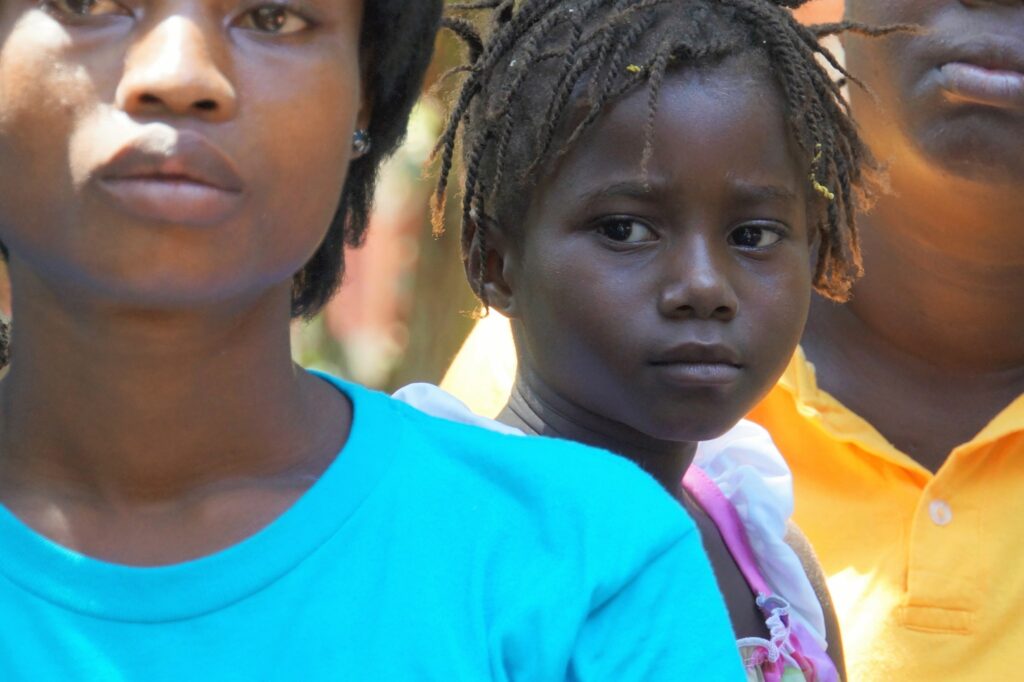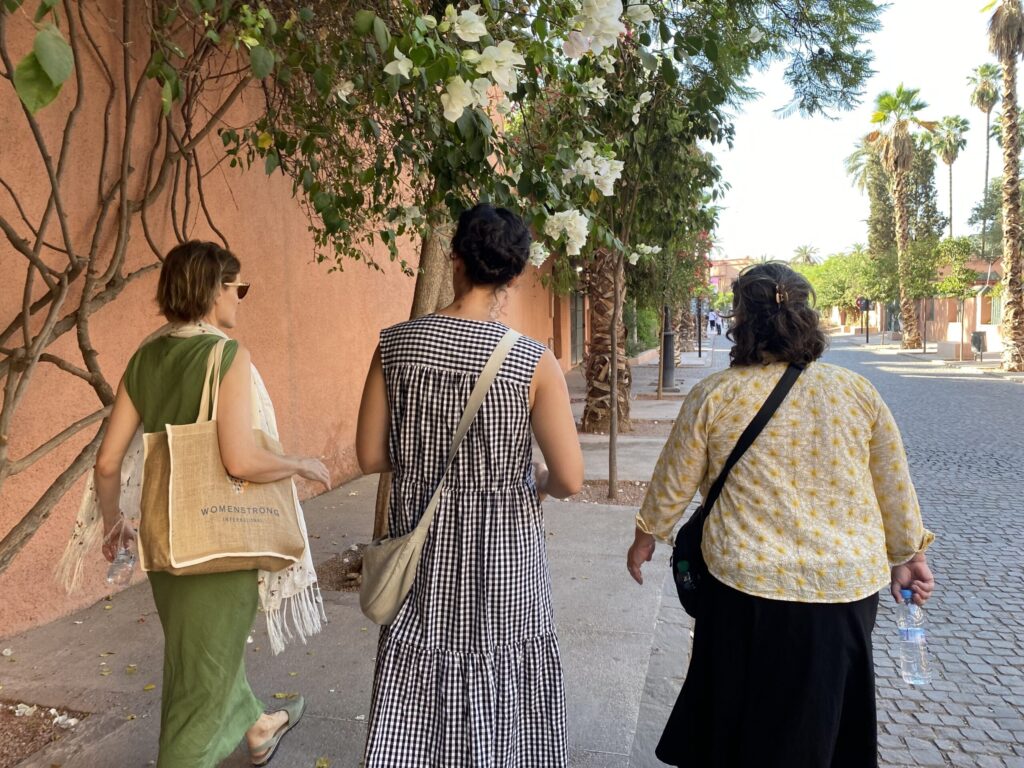Keeping Girls in School: It Ain’t So Simple.

In reaching for solutions to tough problems, we tend to think linearly. Take girls’ education: in parts of the world, we might say, some parents simply aren’t accustomed to their girls going to school beyond a certain (young) age, so these parents need to be taught! Someone just needs to explain that an educated woman will earn more and will make wiser, healthier decisions for herself and her family, including the decision to start her family later, resulting in higher lifetime earnings and fewer children, with more invested in each child.
Simple causes have also been ascribed to teen pregnancy, another reason why girls drop out of school. Kids lack access to contraception or are ashamed to ask for it; they’re also not well-educated about their sexual and reproductive health – not at school, and not at home, where struggling parents are often harried, anxious, or absent, leaving money and tenderness in such short supply that having a baby may look like the only way finally to have something of one’s own and someone to love.
But as a series of recent community stakeholder meetings in the outskirts of Kumasi, Ghana, has demonstrated, life just ain’t that simple. And as WomenStrong International partner Women’s Health to Wealth staff heard from the conservative farmer communities with which they work, the singular social issue of keeping girls in school is actually a late-stage manifestation of the convergence of far greater forces: climate change, deforestation, massive demographic pressure, and rampant real estate development.
Let’s look briefly at just a few of these, to consider some of their cascading downstream impacts on the region’s poorest and most vulnerable.
Climate change, of course, has brought dramatic changes in rain patterns from those to which these farmers, their parents, and farmers in generations past have been accustomed, with the rains’ lack of predictability in timing and intensity the only new constant, and with prolonged drought a dreaded common reality. With plantable acreage fast diminishing and the overworked soils degrading in quality and production, food crop yields have shrunk, family incomes right along with them. And with no storage capability, farmers are forced to sell at harvest time at rock-bottom prices, leaving much of their crop to rot and discouraging them from hiring field hands or sinking further capital into the land.
Less productive land is less valuable land, inducing landowners, mostly traditional Ashanti chiefs, to sell out to hungry real estate developers, literally selling out the farmers’ livelihood from under their feet and turning them into traders overnight. The men often go far afield – up to Ghana’s north, into Togo and Burkina Faso; their wives, once selling their own produce, now need to buy the vegetables they will sell in the Kumasi market, leaving the children to decide for themselves whether school is the best use of their time.
Other men, profoundly frustrated at losing their work and proud agrarian identity, have capitulated to the development boom by becoming temporary construction workers, hauling concrete blocks at roughly $10 per day, while the work lasts. About 70% of their wages go toward feeding their families, parents attested, with much of the balance spent on the men’s alcohol consumption which, in turn, fuels the family fights, domestic violence, family break-up, and the increasing alienation of pre-teens and teen-aged children.
Deforestation, meanwhile, and developers draining the wetlands, have depleted the soils of their nutrients, eviscerated the forest cover and bush animals, and decimated the once-abundant supply of crabs, snails, and other sources of protein with which these families of 3-7 children had supplemented their diets, leaving them ever more dependent on the fathers’ wages, just to survive. This, in turn, has further amped up the pressure on the men to provide, their own feelings of inadequacy, and the downward spiral toward family and community breakdown.
Left to fend for themselves, children, adrift, seek solutions close at hand. The boys can fall prey to the lures of alcohol, drugs, and the street, the girls, to the flattering enticements of town, new clothes, and nighttime tricking for quick cash, returning home before their mother is the wiser. Sometimes the girls move into town with “sugar daddies” who may even pay their school fees in exchange for sexual favors; they may also end up back home, pregnant and shamed, having lost months of schooling and afraid to return.
The many community members who rose to speak in our stakeholder meetings seemed aware that the abandonment of mutual respect and straightforward communication symptomized the collapse of social values, culture, and the comfort of traditional identities that they described. Parents confessed to rarely discussing goals or plans amongst themselves and feeling too harried or preoccupied to carve out time to sit down and speak with their children; their daughters admitted rarely speaking with their fathers about anything, or asking their mothers for guidance about sexual and reproductive health, despite their very much wanting to be able to do so.
By the end of these sessions, the parents acknowledged that not spending time in simple conversation with their children could be considered a form of emotional abuse. As Women’s Health to Wealth Founder/Director Abenaa Akuamoa-Boateng told them, “Our children didn’t ask to be born; it’s our job to take care of them. Every child needs connection,” she reminded them; “each one needs to be loved, held, and understood.”
A lot can be done by government and outside actors, to support education across the Ashanti region and in similar settings. Teachers and principals need good training, salaries, and support, public schools need to be free, safe, welcoming, and well-equipped, with libraries ideally outfitted with books, computers, and the internet, and the pathways to tertiary education must be accessible to all. Speaking for ourselves, WomenStrong supports Girls’ and Boys’ Clubs to help nearly10,000 children to learn life skills, build self-esteem, and stay in school. We have also compiled the curricula used in those clubs, together with other best practices, into a Girls’ Clubs Handbook designed to help other girls and boys build the protective assets they need to stay in school and prepare to thrive.
As loving outsiders, though, whether tutoring one hopeful child at a time, furnishing safe and nurturing spaces where a few thousand children can grow and learn, or publishing supplemental curricula that can reach many thousands more, we need to appreciate how tightly interwoven these issues are with the larger forces at play that can place crushing pressures on families and whole communities.
That teen mom, for instance, or that darling child working alongside her mom in Kumasi’s vibrant open-air market, are the proverbial canaries in the coal mine. We not only have the power in ourselves to help many of them individually; in recognizing the impacts of global pressures all the way down at the grassroots, we now need to muster the collective power to stave off the cascade.




